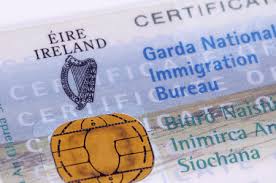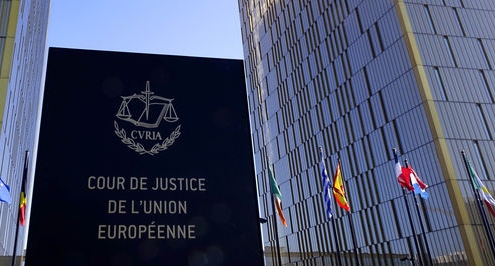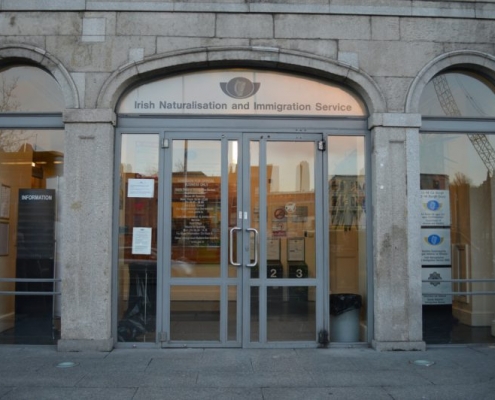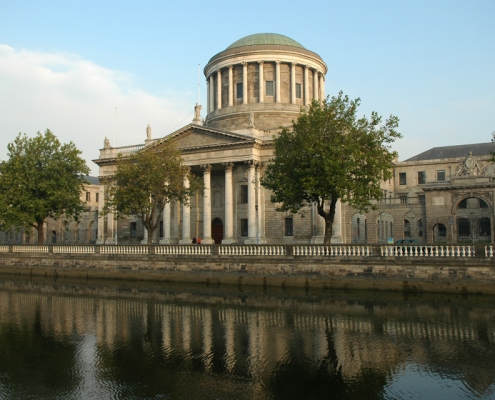Immigration Services
- Residence Permission
- EU Treaty Rights
- Visa Applications
- Citizenship and Naturalisation
- Spouse/Civil Partner of an Irish national
- De Facto Relationship with an Irish National
- Non EEA Parents of Irish Citizen Children
- Family Members of Non EEA National Sponsors
- Change of Status Applications
- Dependent Parent Applications
- Humanitarian Leave To Remain
- The Deportation Process
- Family Reunification (Refugees)
- Subsidiary Protection
- Employment Permits
- Long Term Residency
- Immigrant Investor Schemes
- Start Up Entrepreneur Programme
- Students
- Travel Documents
- Without Condition As To Time
The Immigration Blog

PROPOSED CHANGES TO IRISH EMPLOYMENT PERMIT SYSTEM
The general scheme of the Employment Permits (Consolidation and Amendment) Bill 2019 has been published. The aim of the Bill is to consolidate existing legislation, as the Government believes any further amendment to the existing Employment Permit Acts 2003-2014 would significantly increase the complexity of the current system. Major changes proposed by the Bill including streamlining the processes for ‘trusted partner’ and renewal applications, and making the system more agile and easier to modify to meet changing economic circumstances, technological advances and process changes as they arise.

SUPREME COURT TO HEAR APPEAL ON A DECISION CONCERNING THE DEFINITION OF “CHILD” IN FAMILY REUNIFICATION LAW
The Supreme Court have accepted a “leapfrog” appeal by the Minister and State against a High Court decision concerning the definition of "child" as referred to in the International Protection Act 2015. This means that the State’s appeal will bypass the Court of Appeal and be directly heard by the Supreme Court. The Supreme Court judges have emphasised that the definition of “child” in relation to the 2015 Act has the potential to relate to any case regarding non-biological minors who are claimed to be the child of person who has international protection.

RECENT CJEU JUDGEMENT FINDS THAT INCOME OBTAINED FROM UNLAWFUL EMPLOYMENT CAN BE USED AS PROOF OF SUFFICIENT RESOURCES
The Court of Justice of the European Union has ruled that there are no requirements with regards to the source of income in providing evidence of self-sufficiency. It further held that a child is to be considered self-sufficient and not to be a burden on social welfare system of a host State where they are supported by the unlawful employment earnings of a third country national parent.

INIS RELEASES 2018 ANNUAL REPORT: “IMMIGRATION IN IRELAND STATISTICS”
This annual release has once again highlighted the concerning increase in refusals of leave to land. INIS reports that 4797 persons were refused leave to land in the State meaning individuals were refused entry at the airport/border. This is an increase from the 3,746 persons refused entry into the state in 2017.

IMPORTANT JUDGEMENT RELATING TO PERMITTED FAMILY MEMBERS IN EU TREATY RIGHTS APPLICATIONS: AF AND AF V THE MINISTER FOR JUSTICE AND EQUALITY
Mr Justice Barrett delivered an important judgement on the 26th September 2019 in relation to permitted family members in EU Treaty Rights applications. We believe that this judgment will have an extremely positive impact on permitted family members for such applications. The High Court found that the Minister’s refusal of the application for an EU residence card for a dependent brother was unreasonable and to some extent irrational, and therefore quashed the Minister’s decision.

BRITISH CITIZENS AND THEIR FAMILY MEMBERS IN IRELAND- THE RIGHT TO RESIDE IN THE EVENT OF A NO-DEAL BREXIT
As previously highlighted on our blog, the family members of British citizens resident in Ireland on the basis of EU FAM Residence Cards have received recent correspondence outlining “transitional arrangements” will be put in place in the event of a no- deal Brexit. Further information and clarification has been outlined on The European Commission’s website.

CHENCHOOLIAH V MINISTER FOR JUSTICE- IMPORTANT JUDGEMENT ON RIGHTS OF EU CITIZEN SPOUSES
The European Court of Justice has clarified the correct procedure for the spouses of EU citizens, whose EU citizen spouse has left Ireland and therefore have lost their right to reside under Directive 2004/38/EC and the European Communities (Free Movement of Persons) Regulations 2015 to have their right of residence considered by the Minister.

NEW PRE-CLEARANCE PROCESS FOR NON-EEA DE FACTO PARTNERS OF IRISH CITIZENS
Launched on the 19th of August 2019, this new process enables De Facto Partners of Irish nationals to apply for their permission to reside in Ireland prior to travelling, providing heightened certainty for those planning on moving home to Ireland with their De Facto Partners.
